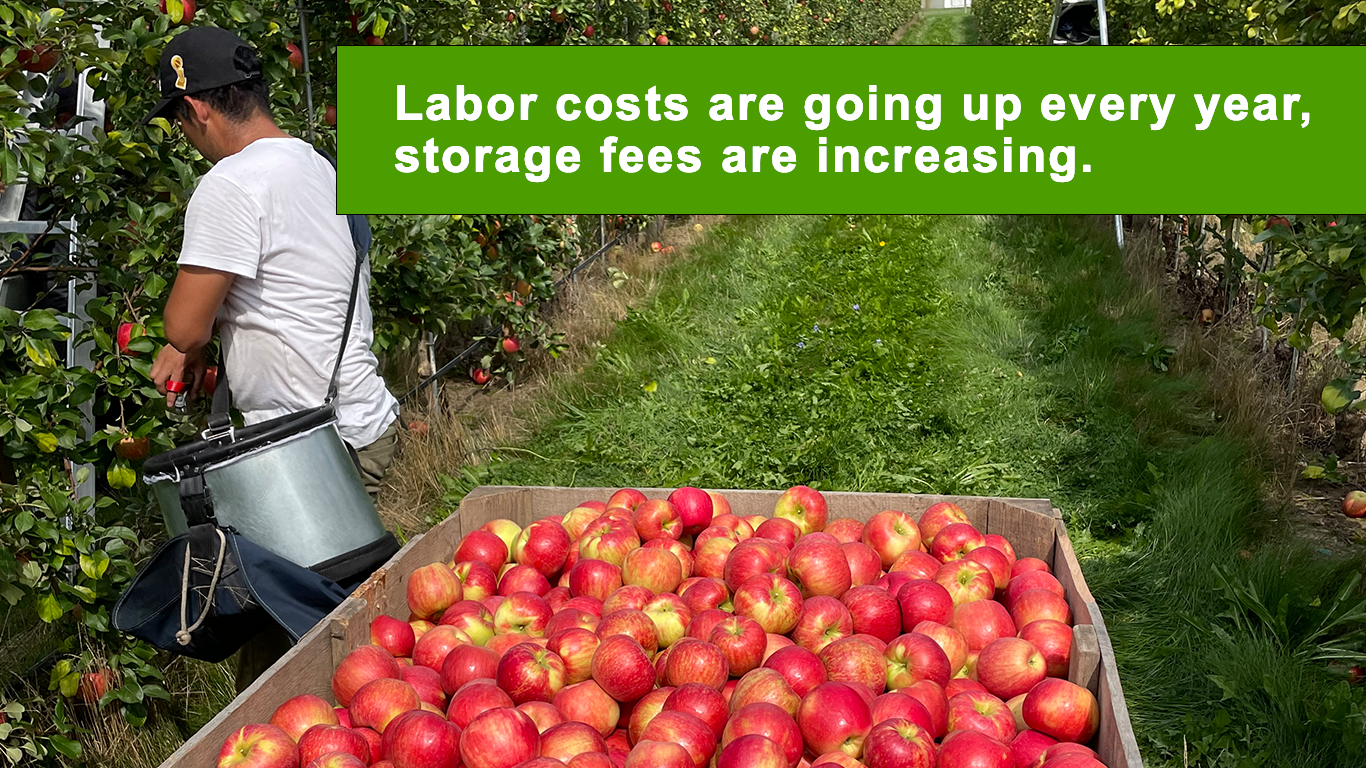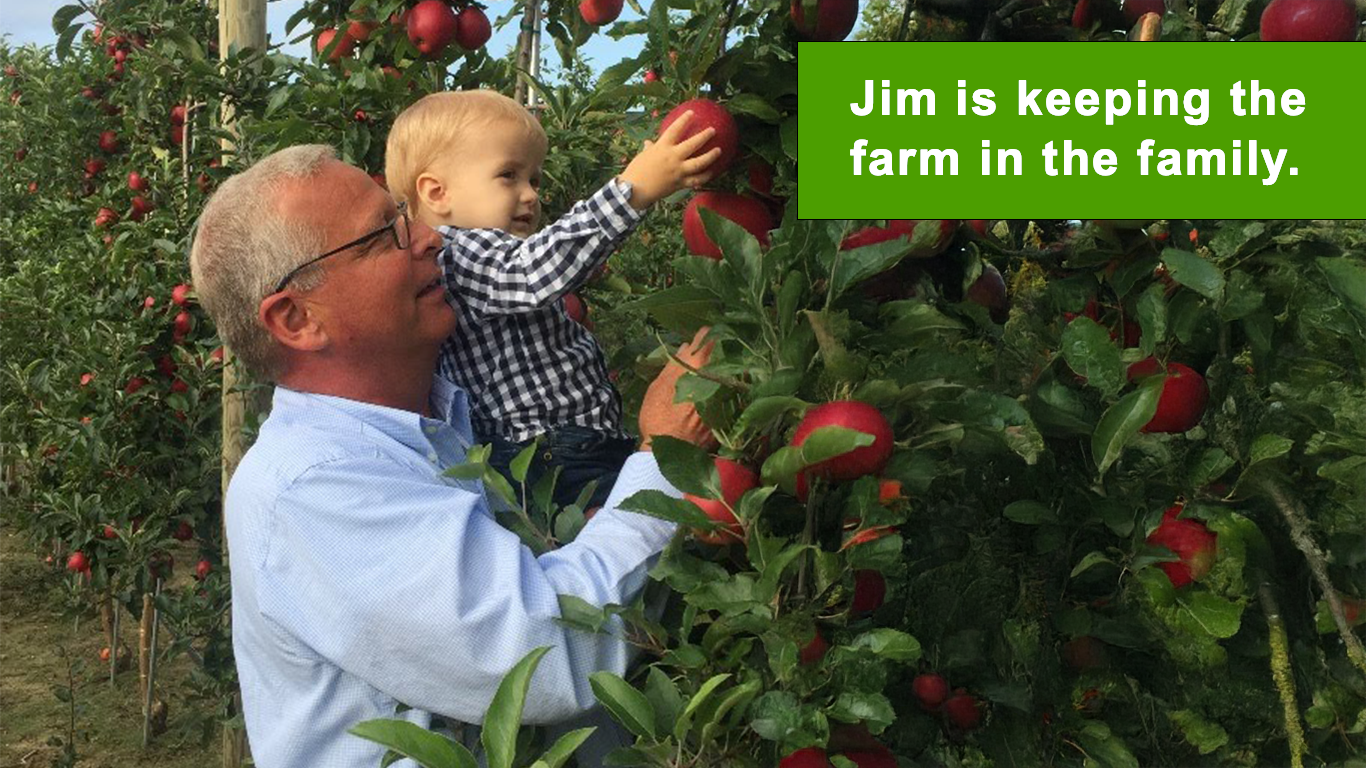Want to stay caught up in all things agriculture? Sign up for the newsletter and get all the latest news straight to your inbox.
Custom Financing for Specialty Crop Farmers
By: Hudson Badskey
Farmers live by cycles: the time between sunup and sundown, the time between planting and harvest, and the time between paying for the seed to grow crops and getting paid for what that seed produces. Specialty crop farmers are particularly affected by the revenue cycle because their crops can take several seasons to come into production, and once in production crop can require a significant amount of manual labor.
A diverse region
In the region I work in, Michigan, we have some of the most diverse crops in the country. Most people think of California first when they think of a diverse set of crops, which is fair, but Michigan also ranks among the top states in terms of crop diversity. Factors like the range of climates, agricultural land availability, and overall agricultural productivity contribute to the rankings of states in terms of crop variety.
Michigan is known for producing a significant amount of sugar beets, corn, soybeans, and wheat. However, on the west side of the state, the focus shifts to a rich variety of vegetables and fruits. Notably, two of the largest crops—apples and cherries—are cultivated in abundance from Benton Harbor to Traverse City. In fact, Traverse City is the “Cherry Capital of the World”. The counties of Grand Traverse, Leelanau, Antrim, and Mason in Michigan are particularly known for their tart cherry production. These areas have a significant concentration of orchards and are responsible for a substantial portion of the nation's tart cherry harvest. Apples hold a special place in the agricultural landscape of our state, being the largest crop produced here. The heart of this apple production lies in Kent County, where the unique ridges along Lake Michigan create a favorable microclimate. This ideal environment allows for the highest concentration of apple orchards, making Kent County a vital hub for apple farming.
The state tends to fly under the radar, but produces an impressive variety of crops. In a state producing a high number of specialty crops, it becomes crucial to address both the collective needs of the diverse range of crops and the unique requirements that vary from grower to grower. This ensures that adequate support is provided to meet the specific demands and challenges of each crop, while also fostering a framework that promotes sustainable agricultural practices and maximizes the overall success of the state's agricultural industry.
One of the highlights about working for Nutrien Financial is I get to work with some of the best in the business. In Michigan, Jim Engelsma is one of those people. He is a facility manager who oversees two Nutrien locations in Michigan, the Sparta and Hart branches, and he’s also a third-generation apple producer in the region. Jim’s family’s operation grows high-density, fresh market fruit and they also have a separate fresh apple cider processing facility. Jim’s commitment to the specialty crop market in this area is unwavering, and he’s got the hands-on experience to back it up, which makes him a tremendous asset for our local producers.
“We started tailoring financial programs around the crops we actually grow here,” says Jim. “So growers didn’t have to meet his banker for coffee and then come see us to compare. We could just take the best finance offer in the industry directly to those farmers.”
Financing that fits your farm
Jim is the perfect example of the type of local experts any Nutrien customer is going to find at our branches. Because of Jim’s know-how with specialty crops paired with Nutrien Financial’s expertise, we identified a need for tailored financing solutions that better fit the cycles of producers in the region. We then worked to create a financing offer with more appropriate due dates that are aligned with the specific revenue cycles of local crops.
Orchard growers appreciate capital flexibility. Establishing an orchard involves significant upfront costs and it can take years to achieve a yield for a startup. During this time, a producer might work with their local bank or other funding sources to accommodate those longer-term financing needs. Once production starts, financing should meet the unique cyclical cash flow of the operation. To accommodate the distinct needs of apple growers in specific regions, we have developed a low-rate financing product with a flexible due date, strategically set just before the onset of the spraying season. This way, they can finance inputs prior to spraying and have an extended deadline to pay versus the usual midseason deadline.
“Sometimes these growers aren’t getting paid for up to a year after the crop has been harvested,” says Jim.
“We approached some of our suppliers about creating a finance program that worked for these producers. They asked about due dates and product lineups, and everyone wanted to help bring an enticing offer to the market.”
By collaborating closely with our suppliers, we bring our growers highly competitive rates and due dates that surpass industry norms. Coupled with our in-house financing, this allows for easier access to essential products such as our Loveland Products adjuvants and nutritionals, effectively reducing the stress of cyclical cash flow. Jim’s long-standing experience as a grower helped us get the details right with a program that was more appropriate to the needs of local growers.
“Labor costs are going up every year, storage fees are increasing,” says Jim. “We’re collaborating with the growers by offering a financing option alongside their existing line of credit, exclusive for their chemical needs. This allows them to conserve their bank lines for other things, giving them more flexibility in managing their operating expenses.”

A bright future
The dollars that our local apple growers save with low-interest rates and extended due dates can be used for a number of other enhancements like technology upgrades, storage, or expansion that ensures the future is bright for the next generation of farmers.
“Nutrien Financial allows people to embrace more technology on the farm. When a chemical is taken care of for me by somebody else, like Nutrien does, that allows me to look at these other enhancements and embrace things that actually make our farm money,” says Jim. “Growers like me are recognizing we have to grow more fruit, we have to do it cheaper, and continue to grow higher quality. Nutrien Financial stimulates all of these things to be more available on the farm.”
Jim’s daughter Bridget currently runs the day-to-day operations of their farm. Considering Jim started farming with his dad, it’s been a much-welcomed transition to keep the farm in the family while it continues to grow in a way that’s beneficial to the entire operation.

“My daughter is on the farm every day. She works alongside everybody and does a lot of the day-to-day management,” Jim says. “She calls the shots, so I’m pretty much hands off but just keeping my hands on the wheel.”
Traditional financing can be challenging for producers, particularly specialty crop growers, who have revenue cycles that differ from those of row crops. Jim and others in Michigan are familiar with these challenges, and the success they’ve seen from customized financing options is just another example of how Nutrien looks to meet every customer where they are to find solutions to their challenges.




